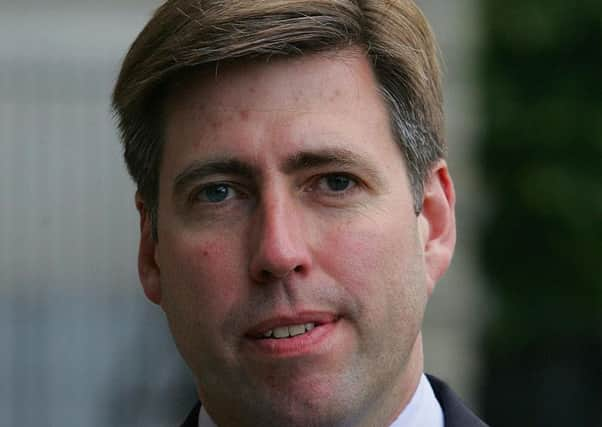Let Eurosceptics campaign for UK exit, urges MP


Graham Brady, the chair of the backbench 1922 Committee, said the Prime Minister’s refusal to relax the convention of collective responsibility risked creating the appearance of “a great rancorous split” in the party.
With a slim Commons majority of 12 meaning the new government could be defeated if just seven MPs rebel, Mr Cameron has been keen to cultivate better relations with rank and file MPs, meeting Mr Brady soon after his election victory.
Advertisement
Hide AdAdvertisement
Hide AdHe will address the ‘22 tomorrow as he seeks to bolster support for his plan to negotiate sufficient EU reforms to persuade the British public to vote to stay in - despite many Tories being determined to force an exit.
Mr Brady said the prospect of a referendum should help avoid “rancour” as ordinary MPs - who have been promised a free vote - would know they could make their views known at the time of the vote.
But with several hardline Eurosceptics around the Cabinet table too, he urged Mr Cameron to follow the lead of Harold Wilson in the 1975 referendum on Britain’s EU membership and extend the same flexibility to ministers.
“Clearly that is a decision for the Prime Minister but my instinct in these things is always that way you have people who have very very strong beliefs about something, it is far better to recognise the strength of those views and to allow latitude and freedom of expression,” he told BBC Radio 4’s Westminster Hour.
“The more you try to constrain people’s views, to limit debate, the more you create tensions which needn’t necessarily be there.
“When it comes to this referendum in 18 months’ time there will be, inevitably, some Conservatives and some Labour members who are on one side of the debate and some on the other.
“The more you recognise that and accommodate it, the less it appears to be a great rancorous split and the more it is just a civilised intelligent debate among people who all have the best interests of the country at heart.”
Mr Cameron has rejected the idea as recently as January, when he told the BBC: “If you’re part of the government, then clearly you’re part of the team that is aiming for the renegotiation”.
Advertisement
Hide AdAdvertisement
Hide AdThe PM has already discussed the renegotiation with a number of major EU leaders in telephone calls since he was re-elected on Friday morning, with formal talks expected soon.
“The first thing is to get the renegotiation going and we will be doing that very soon, getting on with that,” he told Channel 4 News:
“I have already made some calls to European leaders. I’m confident we are going to get the right result.”
It came as Eurosceptic backbenchers began to make clear what they wanted to see from the process.
David Davis suggested that the priority would be securing an effective opt-out for the UK from measures considered against the national interest, rather than immigration issues such as freedom of movement.
“Freedom of movement is important but it is not the main one. The main one is that we are able to say in future to the Europeans that ‘this is too far for us’. Not a veto but an opt-out,” he said.
“There is one already for France - a thing called the Luxembourg Compromise. It’s all about restoring control of our destiny to the House of Commons.”
Asked if he would vote to remain in the EU if that was case, he said: “I think I would. That, for me, is the acid test, it’s not the only one, I grant you, but it’s the central one.”
Advertisement
Hide AdAdvertisement
Hide AdHe played down the prospect of David Cameron facing a repeat of the internal struggles over Europe that hamstrung John Major in the 1990s when anti-EU rebels opposed to the Maastricht Treaty took advantage of a wafer-thin majority.
“One: we have done it before and we know what it feels like. Two: people have got the option of talking to him more than before. And three: if they don’t like the outcome they can actually campaign against it in the referendum.”
Eurosceptic ex-cabinet minister Owen Paterson said Mr Cameron had a “real mandate” to push reform in Brussels.
“We wish the Prime Minister well (on renegotiation). Don’t forget the 27 partners will have seen this, they have seen a very resounding statement by the British people to back the Prime Minister’s programme, he goes there with a real mandate,” he told the Murnaghan show on Sky News.
“We have to give him the time and space to deliver. There is very broad agreement across the Tory party, there is broad agreement with small ‘c’ conservatives who have been completely ignored by the metropolitan media and the pollsters and spoke up.
“They have broad agreement for moving towards an arrangement where we have the benefits of the single market but not the political and judicial arrangements.
“We have to give the Prime Minister, with his massive mandate, the very best shot to deliver.”